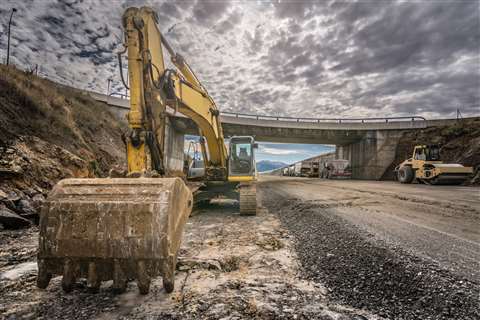UN reviews global infrastructure construction
09 December 2022
The United Nations Environment Programme (UNEP) has undertaken the first ever global review of the ecological risks and economic benefits of transport infrastructure projects.
 The UN has undertaken first-of-its-kind global research on the environmental impact of transport infrastructure projects. Photo: Adobe Stock
The UN has undertaken first-of-its-kind global research on the environmental impact of transport infrastructure projects. Photo: Adobe Stock
The research, undertaken by a UN team of environmental scientists, examined current and planned road and rail projects in 137 countries – focusing on the impact of the construction work on the environment and populations, human and wildlife.
They countered this with the anticipated benefits of the projects on local economies and potential uplift to national gross domestic profit (GDP).
The studies found that currently planned road and rail projects will release 883 million tonnes of carbon from removed trees and vegetation, as well as approximately 1.17 million tonnes of nitrogen.
The identified construction work will also impact some 60,000km of protected areas (or key biodiversity areas), and potentially accelerate the decline of species.
Conversely, the projects have the potential to create 2.4 million new jobs globally, and have a positive effect on GDP of between 0.1% (in North America) and 1.3% (in lower income countries).
The project leaders have developed an online view tool – the Global Infrastructure Impact View – showing respective values of risk and benefit in different parts of the world.
UNEP’s study co-lead Andy Arnell, said, “Well-planned transport infrastructure is crucial for human development. But our expansion continues to pose a huge threat to nature. It is essential that national governments and industry can weigh the ecological consequences of transport development against social and economic benefits.
“Our study is by no means exhaustive – it provides a snapshot of projects, species under threat and emissions and economic impacts, and does not override the need for detailed local and regional risk-benefit assessments of projects. However, we hope it will encourage further scrutiny for high-risk projects, and that our methods provide a springboard for further analysis of the risks from major road and rail developments.”
Rowan Palmer, UNEP’s Sustainable Infrastructure Investment Lead, said, “Our study presents a new way for countries to evaluate trade-offs and better plan major transport projects.
“Over time, we hope our work will be developed to examine the knock-on impact of infrastructure construction on whole ecosystems, as well as more nuanced analysis of socio-economic benefits and risks. In the short-term, we hope it will inspire governments and planners to engage with fine-scaled metrics and robust local assessments.”
STAY CONNECTED



Receive the information you need when you need it through our world-leading magazines, newsletters and daily briefings.
CONNECT WITH THE TEAM








